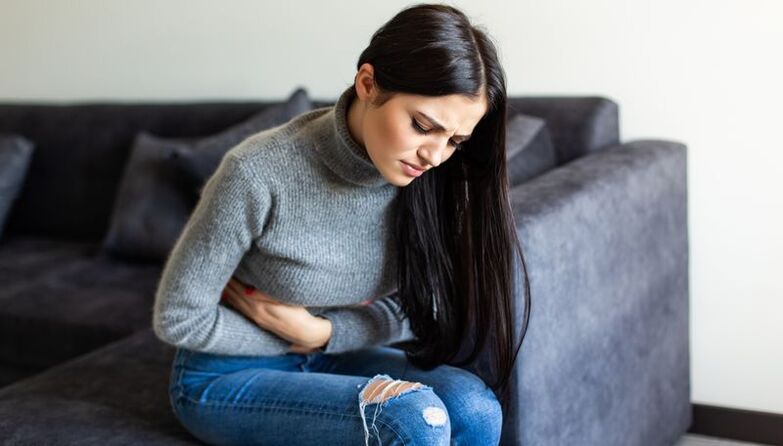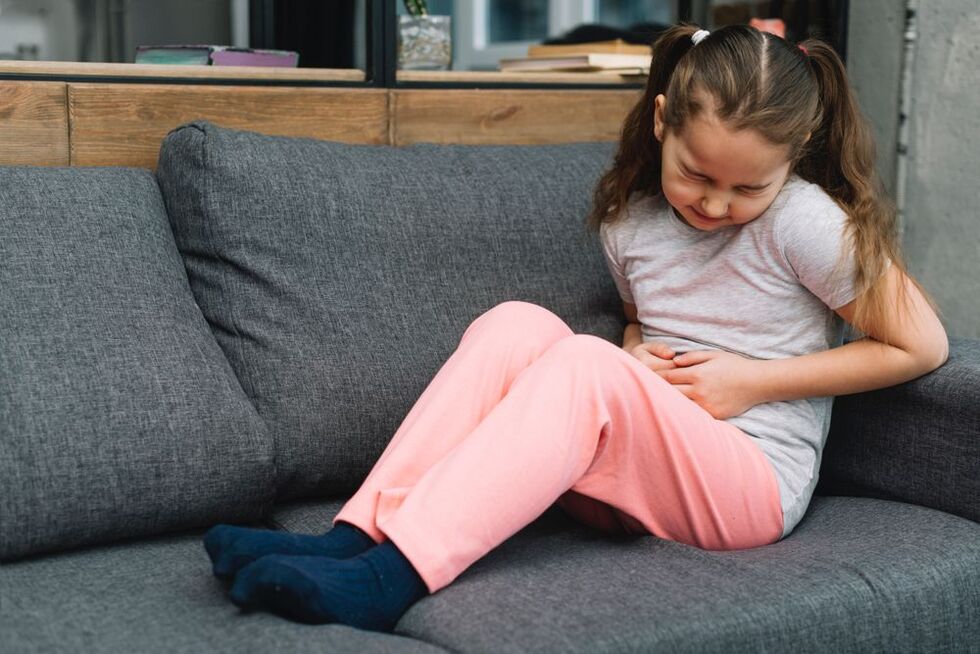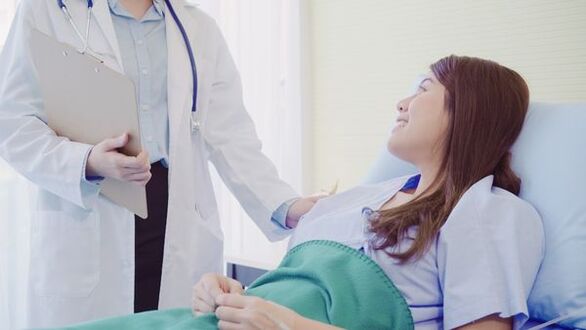
This is an unpleasant disease that women are more likely to suffer from. Cystitis appears due to inflammation of the mucous membrane of the bladder, which occurs against the background of bacterial infection.
Urological diseases can become chronic without treatment and lead to changes in the bladder tissue, triggering the development of serious diseases.
Causes of cystitis
The cause of cystitis can also be a decrease in general immunity, chronic stress, the beginning of sexual activity, narrowing of the urethra, hypothermia, stagnation of urine in the bladder (the habit lasts until the last), unbalanced nutrition, hormonal disorders. , pregnancy, childbirth, surgery on the organs of the urinary system.
Another reason is medication. The cause of cystitis can also be a decrease in general immunity, chronic stress, the beginning of sexual activity, narrowing of the urethra, hypothermia, stagnation of urine in the bladder (the habit lasts until the last), unbalanced nutrition, hormonal disorders. , pregnancy, childbirth, surgery on the organs of the urinary system.
Inflammation in the bladder can also cause the body to react to certain allergens. In women, cystitis is the most common. This is due to the physiological characteristics of the female sexual structure. The urethra is close to the entrance to the vagina and anus. Therefore, it is very important to constantly monitor the quality of intimate hygiene.
Symptoms of cystitis
- frequent urge to urinate - during the process of urinating, pain and burning in the urethra, as well as a feeling of incomplete bowel emptying, may appear.
- pain in the lower abdomen - there is a feeling of bladder congestion. And also a sign of cystitis is itching and burning in the perineum. In some cases, patients do not care about pain and discomfort if they are not too obvious. This can lead to chronic diseases and complications.
- the appearance in the urine of pathological impurities (mucus, blood, pus) - the color of urine can be from pale pink to brick. The presence of impurities indicates the presence of viruses in the human body. With the development of cystitis, a sharp pain in the urethra may appear.
How does cystitis manifest during pregnancy?
During the period of childbirth, the protective function of the immune system decreases in women. Therefore, entering the body, pathological organisms cause the inflammatory process to accelerate.
The development of cystitis is facilitated by the peculiarities of female physiology. The shorter and wider shape of the urethra, close to the vagina and intestines, contributes to the rapid transmission of infections from neighboring organs.
With this disease, the wall of the bladder becomes inflamed, which leads to a violation of its function. The symptoms of cystitis are quite specific - it is difficult to confuse them with other pathologies. A woman may experience frequent and painful urination, blood in the urine, and fever.
First of all, a woman should visit a urologist. He will prescribe the necessary tests, examinations and advise you to undergo an additional consultation with a gynecologist. This allows you to exclude the presence of infection in the genital area, which can cause bacterial vaginosis, colpitis, thrush.
How to treat cystitis in pregnant women? Diet, immunity and hormone status are corrected, blood circulation improves. Then it is necessary to start the fight against pathogens (E. coli, Candida fungi, STI, viruses), restore the damaged structure of the bladder.
Cystitis in children

Given the basic anatomical differences between the sexes, cystitis occurs in girls almost 4-10 times more often than in children of the opposite sex.
Pathological signs in children are varied. There is pain during urination, in the urethra, in the lower abdomen or on the side. Also, the number of urinations may increase, as well as urinary incontinence and leaks that were never noticed before.
Children show instability, which increases during urination, bowel movements. At the same time, the appetite is disturbed, anxiety appears if it is necessary to sit on the toilet for fear of pain, burning, pain. Body poisoning occurs, which is indicated by an increase in body temperature, shivering.
Clinical manifestations vary according to the age of the child. In small children, general symptoms predominate. In addition, children at a young age are not always able to show what worries them. In older children, signs of intoxication are no longer observed, here urinary disorders and pain syndromes come to the fore.
Types of cystitis
There are several pathological classifications: according to course, type of inflammation, cause. We will discuss in more detail about the classification according to the course of the disease.
- Acute cystitisappears a few hours after exposure to the body from harmful factors. It has expressed the symptoms of the inflammatory process with a tendency to development. If acute cystitis is not treated or the wrong therapy is used, there is a high probability of developing a chronic form.
- Subacute cystitishave a vague clinical picture. Symptoms are mild or absent. It can be accompanied only by pain and urinary disturbances, while symptoms of body intoxication (fever, pain, chills) are not observed.
- Chronic cystitisoccurs as a result of untreated acute cystitis. It is characterized by a sluggish course, symptoms are not expressed, and sometimes it is completely asymptomatic. That is, the factor that provokes inflammation in the bladder continues without releasing itself, but at some point there is a sharp aggravation with all the subsequent consequences: frequent and painful urination, burning, itching, cloudy urine, bad taste, etc.
Pathological diagnosis
Urologists deal with the diagnosis and treatment of cystitis. Only experts know how to treat this disease correctly to avoid chronic inflammation and not harm health.
You can go for examination and diagnosis at the nearest clinic. However, this takes time, as you have to wait 2-3 weeks for an appointment with a doctor. But in the presence of acute or subacute cystitis, time is the most valuable resource. Therefore, the best option is to contact a specialized medical clinic. Here you can register for an examination and see a professional doctor in the near future.
The urologist will determine your general health, ask about past illnesses, frequency of urination, and medications taken. Next, the specialist investigates the stomach and kidney area, the lower back.
Cystitis in men - see through and feel the genitals. Examining the prostate gland - rectally.
Cystitis in women - assess the condition of the mucosa, female genital organs, investigate the bladder and ureters.
The following tests may be required for diagnosis:
- general urinalysis
- urinalysis according to Nechiporenko
- bacteriological examination of urine
- cystoscopy
- Ultrasound of the bladder and abdominal organs, including the kidneys
How is cystitis treated?

After repeated appointments with the urologist and diagnosis, the specialist will prescribe an individual treatment program, which includes medication for cystitis. It depends on the disease itself and the level of its course.
In the treatment of cystitis, the following principles must be observed:
- bed rest or half-bed rest during the period of acute symptoms of the disease.
- medicinal food. Diet for cystitis should be lacto-vegetarian, that is, the patient's daily diet should be dominated by dairy products, vegetables and fruits. Fried, spicy, salty and spicy dishes, as well as alcoholic beverages are strictly prohibited.
- antibiotic therapy. The inflammatory process can be treated with antibacterial and anti-inflammatory drugs. Antibiotics for cystitis are prescribed first with a wide spectrum of action, and after receiving the results of urine culture and antibiogram. Antimicrobial drugs are used, to which the causative agent of cystitis is sensitive.
- pain therapy. With severe pain in the bladder, the patient is given painkillers and antispasmodics.
- physiotherapy treatment (electrophoresis, phonophoresis, inductothermy, UHF and others).
We recommend that you do not self-medicate under any circumstances, but consult a urologist in such a complicated matter. Make an appointment with a urologist and make sure that your problem will remain outside the walls of the clinic.
























